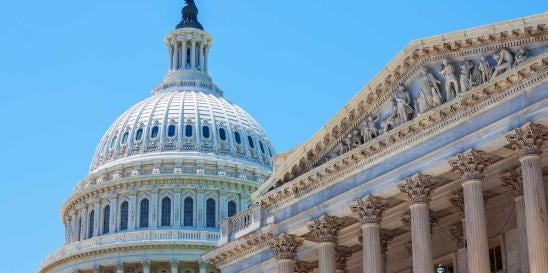On June 30, 2023, in a challenge by gaming competitors to the Florida-Seminole gaming compact (the Compact), the US Court of Appeals for the DC Circuit held that while a gaming compact entered into between a state and a Native American tribe pursuant to the Indian Gaming Regulatory Act (IGRA) can legally authorize a tribe to conduct gaming only on its own lands, IGRA does not prohibit a gaming compact from addressing other topics, including those governing activities “outside Indian lands” as long as the topics are directly related to gaming.
In so holding, the DC Circuit rejected the claim that the Compact violated IGRA by authorizing participation in gaming on tribal lands by persons operating digital/mobile devices off of tribal lands. The challenged portion of the Compact was Section IV.A, “Authorization and Location of Covered Games.” It reads:
The Tribe and State agree that the Tribe is authorized to operate Covered Games on its Indian lands, as defined in [IGRA.] . . . Subject to limitations set forth herein, wagers on Sports Betting . . . made by players physically located within the State using a mobile or other electronic device shall be deemed to take place exclusively where received at the location of the servers or other devices used to conduct such wagering activity at a Facility on Indian Lands.
The Compact, said the DC Circuit, authorized only the betting that occurs on the Tribe’s lands — the Tribe operating sports betting on its own lands.[1] The Compact discussed,[2] but did not authorize, sports bets that are deemed to occur on tribal lands because the servers at which the wagers are accepted are on tribal lands. Whether it is otherwise lawful under Florida law for a patron located in Florida to place bets from non-tribal lands to be accepted on tribal lands within Florida is a question for the Florida state courts and not for the Secretary of the Interior to decide in a challenge to a gaming compact.
In a sleight of hand, the Secretary of the Interior and the court itself found that “[g]aming outside Indian lands cannot be authorized by IGRA, but it may be addressed in a compact.” The Secretary rejected the competing casinos’ argument, asserting that while the Compact here “discussed” online sports betting off of tribal lands, it did not “authorize” it. And, the court said, whether or not that gaming is authorized or permissible as a matter of Florida state law falls outside the scope of the Secretary’s review.
Indeed, if betting off of tribal lands were not lawful under Florida law, no compact with the Seminole Tribe would otherwise make it legal.[3]
What many expected to be a seminal case on whether tribal compacts could allow mobile and digital betting from locations other than within the confines of the tribal lands themselves ended with a whimper[4] and a narrowed decision that as long as the gaming compact authorized gaming on the tribal lands themselves, as the Compact did in authorizing Las Vegas-style gambling and in-person sports betting at the Tribe’s casinos, any discussion in the Compact of other gaming in Florida was merely a discussion and not an authorization under the Compact, and the Secretary of the Interior correctly allowed the Compact to go into effect.
The ruling, expected to be appealed to the US Supreme Court, could have wide-ranging implications for both sports betting and online wagering offered by Native American tribes.
[1] “The first sentence of this section simply states that the Tribe is authorized to operate sports betting on its lands. This is uncontroversial and plainly consistent with IGRA.”
[2] “Next, the Compact discusses wagers on sports betting ‘made by players physically located within the State using a mobile or other electronic device,’ which are ‘deemed to take place exclusively where received.’ The Compact does not say that these wagers are ‘authorized’ by the Compact (or by any other legal authority). Rather, it simply indicates that the parties to the Compact (i.e., the Tribe and Florida) have agreed that they both consider such activity (i.e., placing those wagers) to occur on tribal lands.”
[3] “[An] IGRA compact cannot provide independent legal authority for gaming activity that occurs outside of Indian lands, where that activity would otherwise violate state law. That is in fact the position advanced by the Secretary — who is a party to this litigation — and we agree. See Oral Arg. Tr. at 6:14–21 (Counsel for the Secretary: “[I]f the state statute . . . related to this action were to be challenged in Florida state court and were to fall, the [17] compact that they crafted would give no independent authority for the Tribe to continue to receive bets from outside Indian lands.”).”
[4] “Thus, we hold only that the Secretary’s decision not to act on the Compact was consistent with IGRA. In reaching this narrow conclusion, we do not give our imprimatur to all of the activity discussed in the Compact. And particularly, for avoidance of doubt, we express no opinion as to whether the Florida statute ratifying the Compact is constitutional under Fla. Const. art. X, § 30. That question and any other related questions of state law are outside the scope of the Secretary’s review of the Compact, are outside the scope of our judicial review, and as a prudential matter are best left for Florida’s courts to decide.”





 />i
/>i

